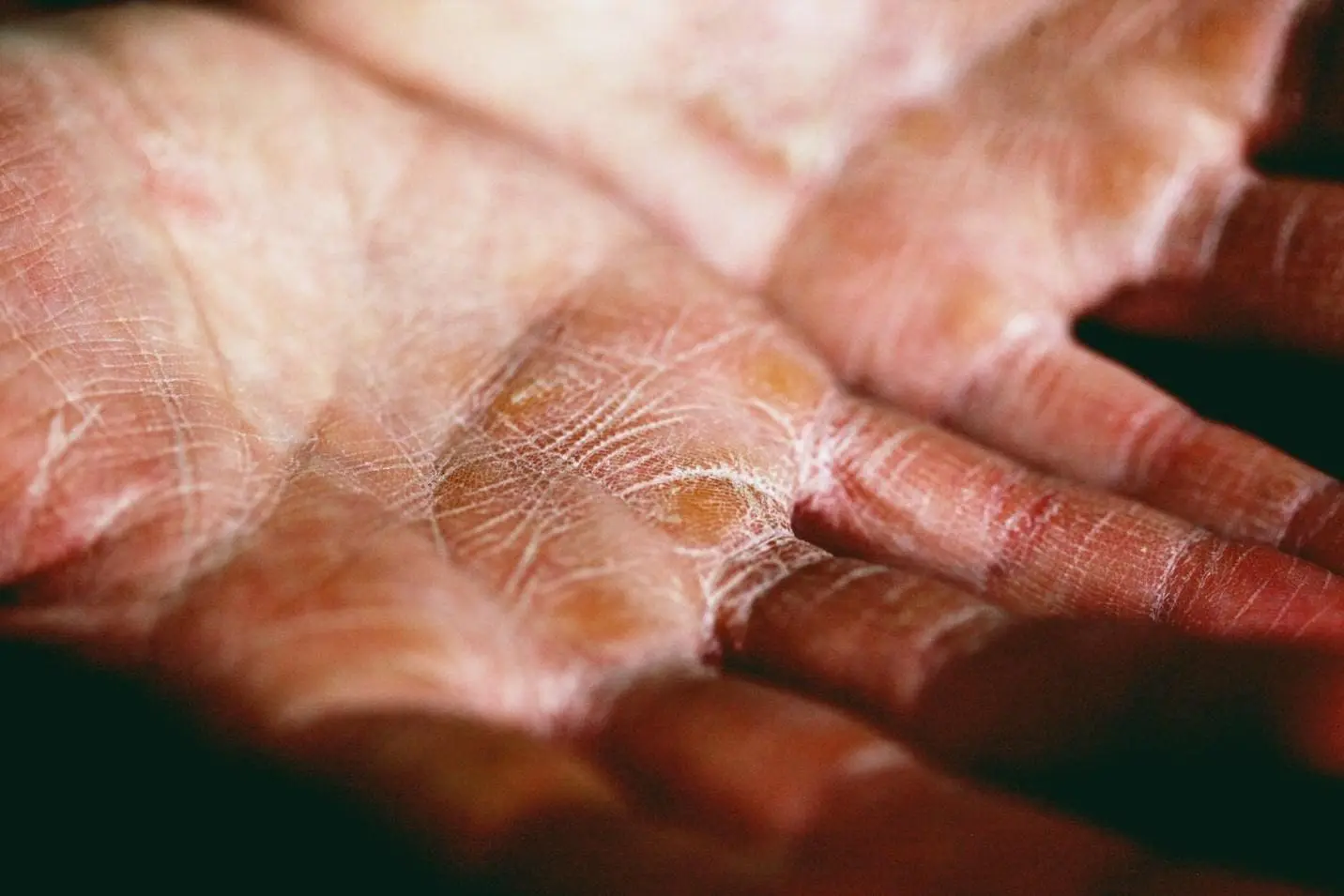
If you have been battling the relentless itch and redness that comes with eczema, you are not alone. It’s not the most pleasant experience. But fear not! We have got your back (and your skin) with some tried-and-true tips to soothe that eczema-induced irritation.
In the hustle and bustle of our daily lives, our skin often bears the brunt of environmental stressors, pollutants, and, sometimes, our own neglect. The result? Irritated skin that feels uncomfortable.
What Is Eczema?
Eczema, also called “atopic dermatitis,” is a chronic skin condition that is identified by itching, inflammation, redness, and the formation of small, fluid-filled blisters. It is a type of dermatitis, which refers to the inflammation of the skin. Eczema can affect anyone, but it is particularly prevalent in infants and children.
The exact cause of eczema is not fully understood, but it is believed to result from a combination of genetic and environmental factors. Individuals with a family history of eczema, asthma, or hay fever may be more susceptible to developing this skin condition. Additionally, environmental factors such as exposure to certain irritants, allergens, or changes in temperature and humidity can trigger or worsen eczema symptoms.
Symptoms of Eczema
Itching: One of the hallmark signs of eczema is intense itching. Scratching the affected areas can exacerbate the inflammation and lead to more severe symptoms.
Redness and Inflammation: The skin affected by eczema typically becomes red and inflamed. This is a result of the immune system responding to triggers and releasing chemicals that cause inflammation.
Dry Skin: Eczema can cause the skin to become dry, rough, and scaly. In severe cases, the skin may crack and bleed.
Blisters and Oozing: In some cases, eczema can lead to the formation of small, fluid-filled blisters that may ooze and crust over. This is more common in acute flare-ups.
Thickened Skin: Prolonged or chronic eczema can result in thickened and leathery skin, especially in areas that are frequently scratched.
Eczema tends to affect different areas of the body depending on the age of the person. In infants, it often appears on the face and scalp. In older children and adults, it commonly affects the hands, feet, wrists, elbows, and the back of the knees.
Tips for Managing Eczema
From identifying triggers that can provoke flare-ups to recognizing the importance of a gentle skincare routine, knowledge is the compass that will guide you in managing eczema. Here are some tips that will help you with it:
Lifestyle Adjustments
Moisturize Regularly
One of the key elements in managing eczema is keeping the skin well-hydrated. Opt for fragrance-free, hypoallergenic moisturizers and apply them multiple times a day. This helps create a protective barrier, reducing the risk of flare-ups.
Choose Gentle Soaps
Harsh soaps and detergents can aggravate eczema symptoms. Use mild, fragrance-free cleansers to avoid irritation. Consider soap-free alternatives or those specifically designed for sensitive skin.
Avoid Triggers
Identify and minimize exposure to triggers that worsen eczema. Common triggers include certain fabrics, harsh weather conditions, and stress. Take note of factors that coincide with flare-ups and work on minimizing their impact.
Dress in Breathable Fabrics
Wear breathable, loose-fitting clothing made from fabrics such as cotton. Avoid synthetic materials and wool that can irritate the skin.
Maintain a Consistent Environment
Sudden changes in temperature and humidity levels can impact eczema-prone skin. While this is not possible outdoors, aim for a consistent and comfortable indoor environment to reduce skin stress.
Skincare Routine
Bathe Wisely
Use lukewarm water for bathing, as hot water can strip the skin of its natural oils. Keep baths short, ideally around 10 minutes, and consider adding colloidal oatmeal or a mild bath oil to the water.
Pat Dry, Don’t Rub
After bathing, gently pat the skin dry with a soft towel. Avoid vigorous rubbing, as it can exacerbate irritation.
Prescription Topicals
Consult with a dermatologist to explore topical prescriptions that may be suitable for managing eczema. These can include corticosteroids or calcineurin inhibitors.
Wet Wrap Therapy
For severe flare-ups, wet wrap therapy can be beneficial. After applying moisturizer or medication, wrap the affected area with damp bandages or clothing to lock in moisture.
Dietary Considerations
Omega-3 Fatty Acids
Include foods containing omega-3 fatty acids, such as walnuts, fish, and flaxseeds in your diet. They have anti-inflammatory properties that may help mitigate eczema symptoms.
Hydration
Stay well-hydrated by drinking plenty of water. Hydration is essential for maintaining healthy skin and contributes to a glowing complexion.
Identify Food Triggers
Some people with eczema may experience flare-ups triggered by certain foods. Keep a food diary to identify potential culprits, and consider consulting with a healthcare professional for guidance.
Stress Management
Practice Relaxation Techniques
Stress is also a leading factor that triggers eczema flare-ups. Try stress-reducing activities, such as meditation, yoga, or deep breathing exercises.
Adequate Sleep
Ensure you get sufficient quality sleep. Lack of sleep can contribute to stress and negatively impact the immune system, potentially worsening eczema symptoms.
Professional Guidance
Dermatologist Consultation
Schedule regular check-ups with a dermatologist to monitor your eczema and adjust your treatment plan as needed. Professional guidance is essential for effectively managing the condition.
Allergist Evaluation
If allergies are suspected triggers, consider consulting with an allergist to identify specific allergens and explore strategies for avoidance.
In conclusion, to manage eczema effectively, you must make a couple of changes in your lifestyle. Maintaining a consistent and gentle skincare routine and staying hydrated are paramount. Don’t forget to consult with a healthcare professional, such as a dermatologist, to get an accurate diagnosis. They will prescribe suitable medications and offer personalized advice based on the severity of the condition.
At Suncoast Skin Solutions, we have a team of experienced dermatologists who specialize in treating eczema. Living with this skin condition can be challenging, both physically and emotionally. We are here to listen, support, and guide you every step of the way, empowering you to take control of your skin health. Schedule a consultation with our expert dermatologists today and take the first step towards finding relief. Call 1-844-SUNDERM.
SunCoast Skin Solutions Dermatology offices are located in Tampa / Hillsborough, St. Pete / Pinellas County, Brandon, Lutz, Winter Haven, Largo, Hudson, Leesburg, Jupiter, Lecanto, Riverview, Brooksville, Clearwater, Ocala, Palm Harbor, Daytona Beach, Sarasota, Punta Gorda, Seminole, Jacksonville, (Inverness, Port Charlette, Port Saint Lucie coming soon), Florida. Contact us at 1-844-786-3376 or click here.

Recent Comments